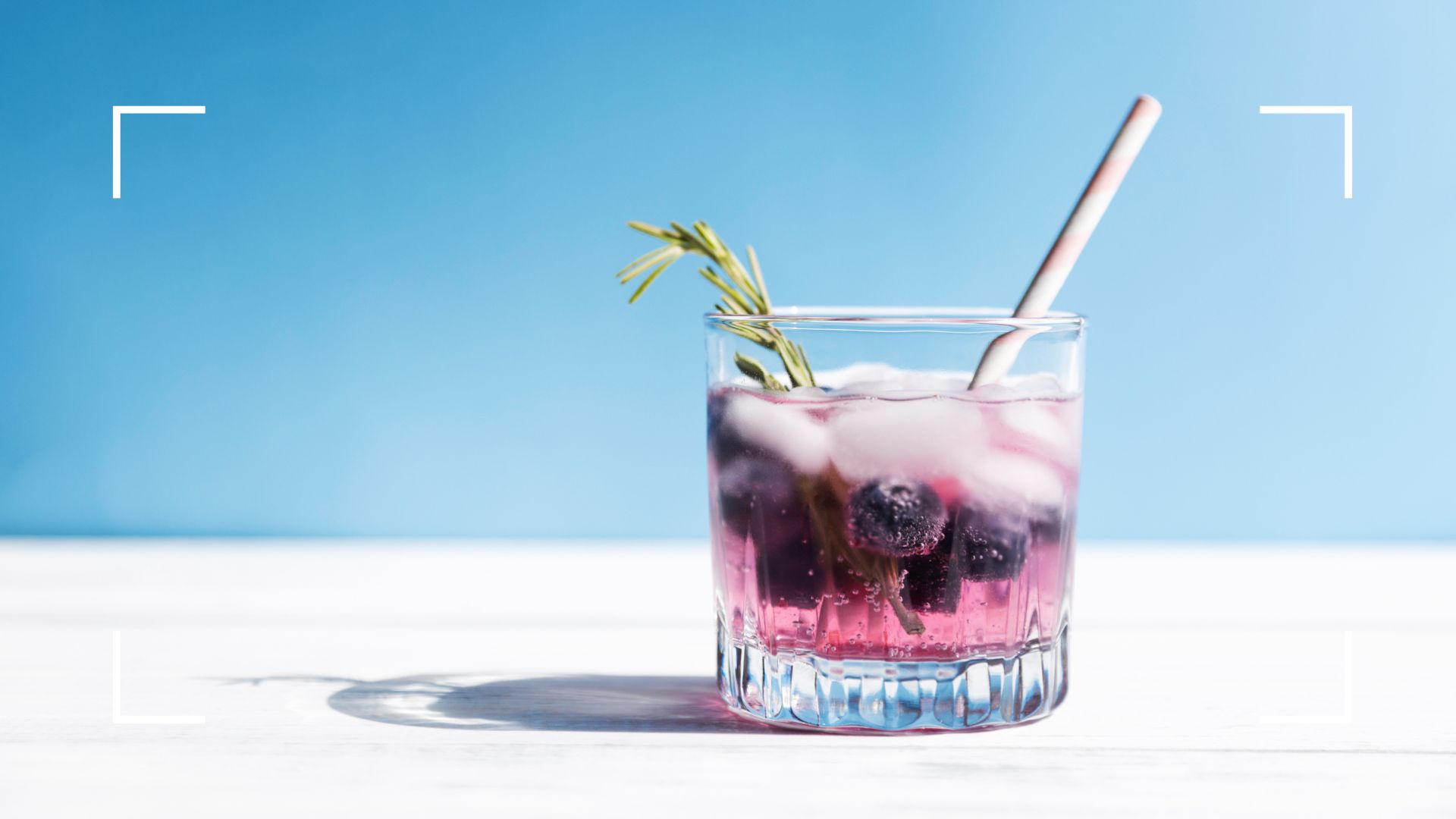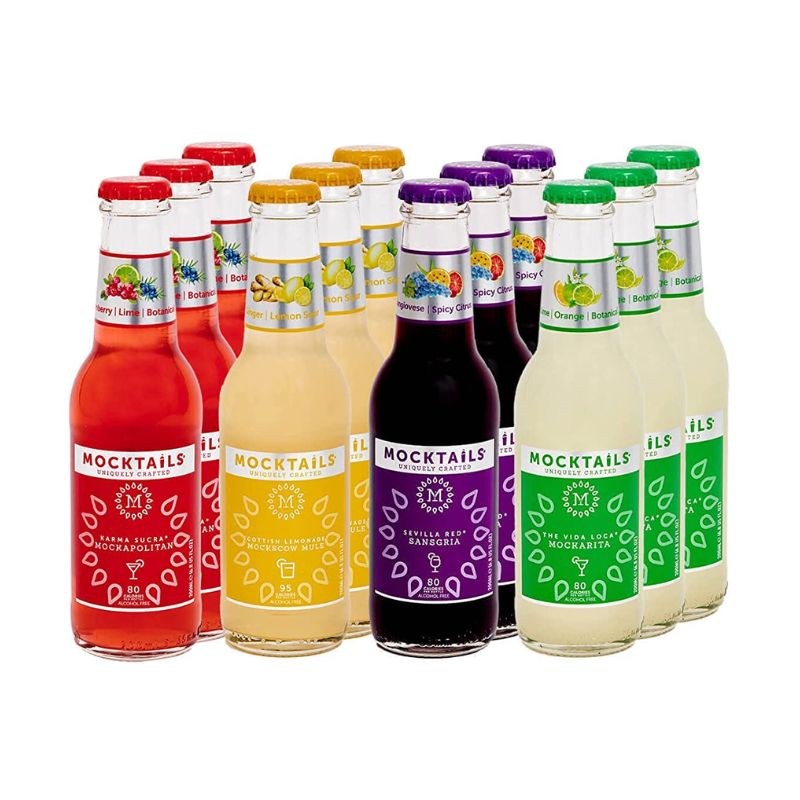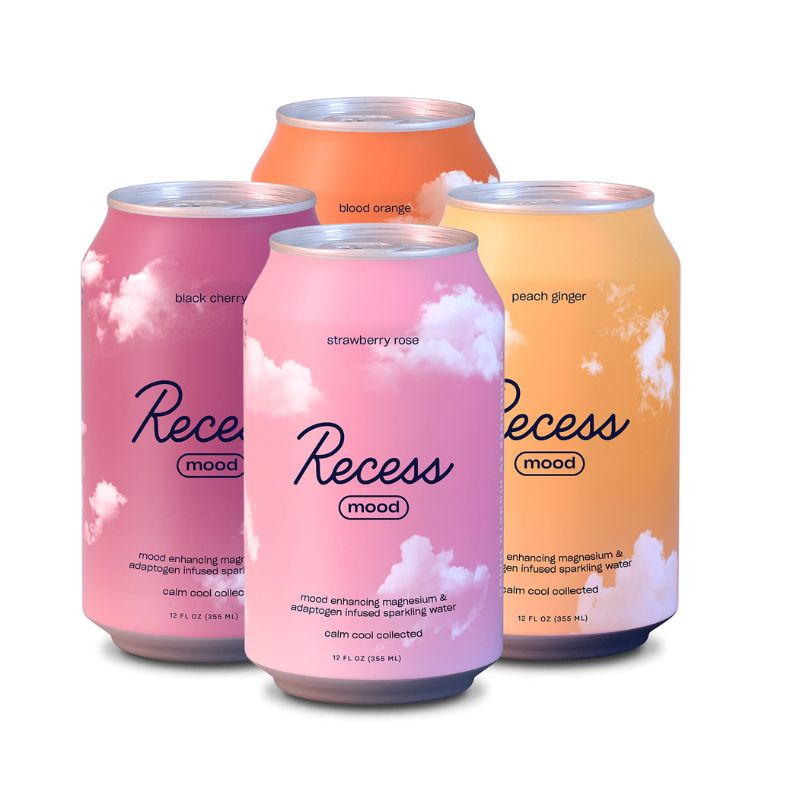5 reasons why there’s no such thing as healthy alcohol - and what to drink instead
Healthy alcohol is something we hear about all the time, here's why it doesn't exist


Healthy alcohol is a label given to drinks that are low in calories or sugar, or supposedly come with benefits like immune-boosting, anti-allergy, or hangover-fighting properties. Whether the label is justified, however, is debatable.
Given the recent turn to mindful drinking and sober-curious movements in the last couple of years, it’s a label that’s been used in defense of every popular alcoholic drink from red wine to tequila. If it’s lower in calories than other types, contains less sugar than the average drink, or has even one study suggesting that it can be good for your health, then it’s been called healthy. It's even been suggested it's okay to drink alcohol every day because of this in some cases.
You don't need to read any of the top-rated quit lit books out there to know that alcohol makes up a large part of our society, and there’s nothing wrong with enjoying a drink or two, but is there really such a thing as healthy alcohol? Even the lowest calorie alcohol is full of sugar and the long-term health risks associated with excessive alcohol consumption can’t be ignored. Whether you’re looking for a reason to cut back or just want to learn more about the trend, this is what the science says.
Does healthy alcohol exist?
No, there's no such thing as healthy alcohol. Some alcohol, like red wine, has been shown to have benefits, says Lauren Helen Marsh, a clinical nutritional therapist specializing in disordered eating behaviors. But there's also an equal amount of research that suggests whatever positive qualities drinks like red wine possess, the ethanol content counteracts them.
"Red wine has been shown to have benefits, including containing antioxidants and protecting against cholesterol buildups," Marsh says, pointing to a review by the University of Naples and a study by Tomas Bata University that outlines the positive finding around resveratrol, one of the polyphenols that act as an antioxidant in red wine. "The flavonoids and antioxidants in wine can be beneficial for the heart and blood vessels, as well as for people with type 2 diabetes."
However, most of the research on this looks at resveratrol in concentrated supplement form, rather than in red wine specifically. Numerous studies have also argued against this entirely, with a 2022 report from Harvard Medical School suggesting that any alcohol intake at all is linked with a higher risk of cardiovascular disease.

We also need to consider the other effects of alcohol, few to none of which could be considered healthy. In the short-term, these include relaxation, drowsiness, and lowered inhibitions, says Marsh, who is also Able's health coach. “Within minutes of consuming it, alcohol is absorbed into the bloodstream by blood vessels in the stomach lining and small intestine and because alcohol is a depressant, it slows down the body’s systems when it reaches the brain.”
Sign up to our free daily email for the latest royal and entertainment news, interesting opinion, expert advice on styling and beauty trends, and no-nonsense guides to the health and wellness questions you want answered.
Over time, she explains, alcohol use can begin to take a toll on anyone’s physical and mental wellbeing. “These effects may be more serious and more noticeable if you drink regularly and tend to have more than one or two drinks when you do.”
Some of the longer-term effects of alcohol on both mental and physical health include:
- Persistent changes in mood, including anxiety
- Insomnia and other sleep concerns
- Weakened immune system
- Changes in libido and sexual function
- Changes to appetite and weight
- Problems with memory and concentration
- Difficulty focusing on tasks
- Increased tension and conflict in romantic and family relationships
So while gin may contain juniper berries, which could help aid a healthy immune system, and tequila cocktails may be one of the best low calorie alcoholic drinks in a can, neither can be actively considered healthy with the associated risks of alcohol.
Why doesn't healthy alcohol exist?
1. Health benefits and risks cancel each other out
Take the gin example; gin is made from juniper berries and there is some evidence from the Rayat Institute of Pharmacy that juniper berries contain antioxidants and various anti-inflammatory properties, but a little more than a double gin and tonic every day (working out to about 30g of alcohol) can also rapidly increase the risk of liver disease, a study by Charles University explains.
So for every potential benefit for the heart, there’s another disadvantage for the body. This means, when it comes to healthy alcohol, the drinks you choose and how much of them you drink need to be weighed up carefully.

2. The liver struggles to process alcohol
We all know that alcohol impacts the liver, as one of the organ's most important roles is to process the various toxins that we put in our bodies. However, according to research from Indiana University, almost everyone who drinks more than half an ounce (15ml) of alcohol per day will gradually develop fatty liver cells, as the organ struggles to process the alcohol.
This is reversible but the more you drink, the worse the condition becomes. In severe cases, this can lead to the liver becoming inflamed, liver cells being destroyed, and scar tissue forming in its place. When this happens, a serious condition called cirrhosis develops.
3. The more you drink, the higher the risk
This goes for all alcohol-related diseases though. Another study published in The Lancet found that there’s actually no amount of alcohol that’s safe to drink and the risk of developing serious health conditions increases with more alcohol consumption, putting moderate to heavy drinkers most at risk.
Compared to teetotalers, people who had two drinks per day were 7% more likely to develop one of 23 different health-related problems, including cancer. Someone who had five drinks a day was 37% more likely to develop one of these conditions.
So even if you’re only drinking red wine, with all its perceived health benefits, you can still do serious damage to your long-term health by drinking just two drinks a day. While this may feel like a lot to some, it's a volume that 23% of people in the UK admit to regularly surpassing, according to data from the NHS’ Heath Survey 2019, and a number that’s been well-surpassed since the lockdown in 2020, according to research by the British Government.
4. There's a strong link between alcohol and poor mental health issues
The link between drinking alcohol and the risk of developing a mental health condition like depression is well-established. They act in a vicious cycle, research from the University of Otago confirms, as alcohol misuse and depression appear to increase the risk of each other simultaneously, with alcohol being the most prominent contributor in some other studies.
Many people dealing with depression and issues like anxiety and burnout drink to reduce stress, but it worsens the situation as alcohol is a depressant. Over time, this can lead to dependency as alcohol triggers the release of serotonin and dopamine, a study by Amity University explains, and you may start to feel withdrawal symptoms when you don't have it.
5. Moderation is a myth
Many people see moderation as another name for drinking healthily but several studies, including research by Anglia Ruskin University, have found that this is a myth: even moderate drinking can cause serious health issues.
The study looked at almost 450,000 participants over seven years and found that consistent, low-level consumption of beer, cider, and spirits was connected to a higher risk of cardiovascular disease, heart disease, and various neurological conditions like stroke and cancer, as well as overall mortality.

How much alcohol is healthy?
While there's no level of actively healthy alcohol consumption, with research from the University of Oxford even going so far as to say there's no safe level of alcohol consumption, Marsh confirms advice from the NHS and the CDC. "To stay healthy, alcohol consumption needs to be within the recommended drinking limits, which is one drink per day for women and two drinks for men," she says.
Alcohol is an important element of many people's social lives and it's enjoyed by millions of people around the world. Just as it's not always necessary to opt for healthy chocolate over a slab of Dairy Milk, it's not always necessary for everyone to cut out alcohol completely.
What to drink instead
Switching to some of the best alternatives to alcohol, such as no and low-alcohol versions of your favorite beers, wines, and ciders is a great way to cut out some of the harmful effects of heavy drinking and the calories they offer, says Marsh. You can opt for low calorie cocktails too, as these often naturally contain less alcohol.
"With the increasing demand for non-alcoholic beverages, many brands now offer 0% versions of their drinks. Drinking a non-alcoholic drink in a social situation and having a drink in your hand will help to reduce the urge to order something alcoholic." These no-alcohol alternatives are some of the best non-alcoholic low calorie drinks in a can you can buy:

This 24 mixed pack of non-alcoholic beers are a great alternative to booze. Brewdog is famous for their beers and this selection includes all the cult classics - without the alcohol. Includes: Punk IPA, Elvis, Hazy IPA, and Nanny State Golden Ale. You can also buy a limited selection through Amazon in the UK for £23.95.

Mocktails are a great low-calorie, low-sugar, and alcohol-free alternative to drinking. With mixes like Mocksow Mule, Mockapolitan and Sangrita, you'll always have a healthy alcohol alternative in hand for when you want it. Also available in can form from Amazon UK.

For something a little different, there's Recess' sparkling waters. Packed with all the benefits of magnesium, these cans make for a great healthy alcohol alternative - without tasting like it. Available in strawberry rose, black cherry, or peach ginger flavors. For a UK alternative, try Trip's CBD drinks.

Grace Walsh is woman&home's Health Channel Editor, working across the areas of fitness, nutrition, sleep, mental health, relationships, and sex. She is also a qualified fitness instructor. In 2025, she will be taking on her third marathon in Brighton, completing her first ultra marathon, and qualifying as a certified personal trainer and nutrition coach.
A digital journalist with over seven years experience as a writer and editor for UK publications, Grace has covered (almost) everything in the world of health and wellbeing with bylines in Cosmopolitan, Red, The i Paper, GoodtoKnow, and more.